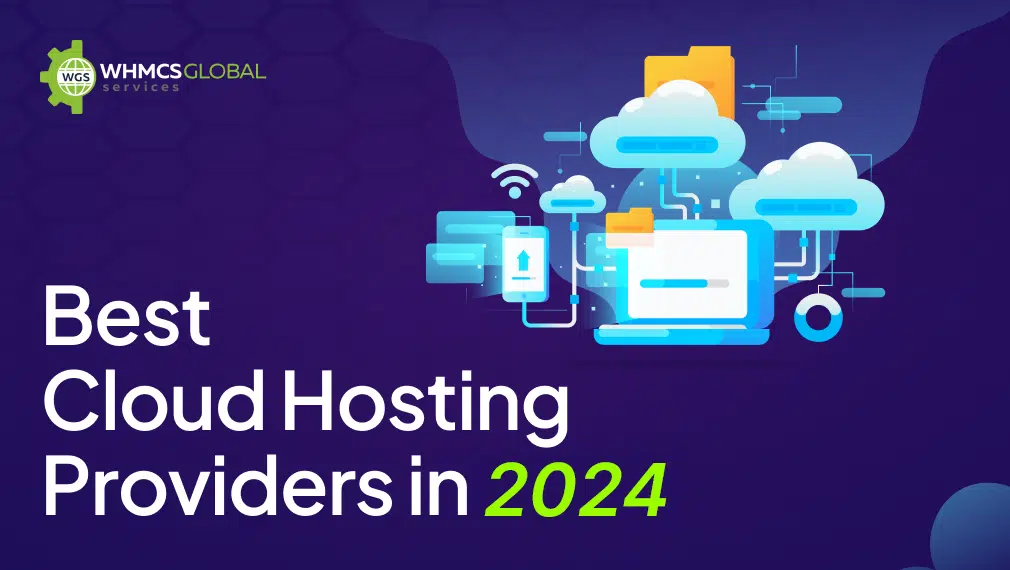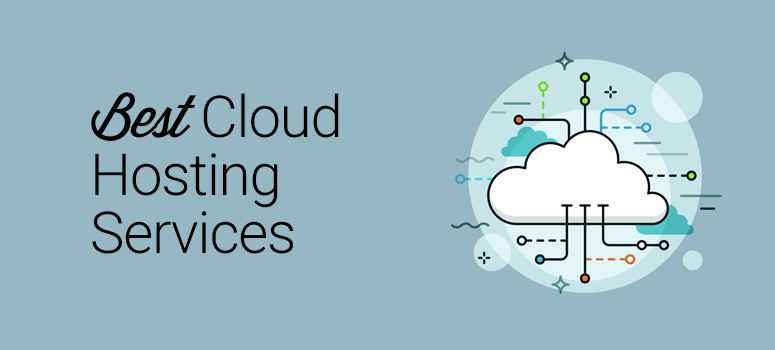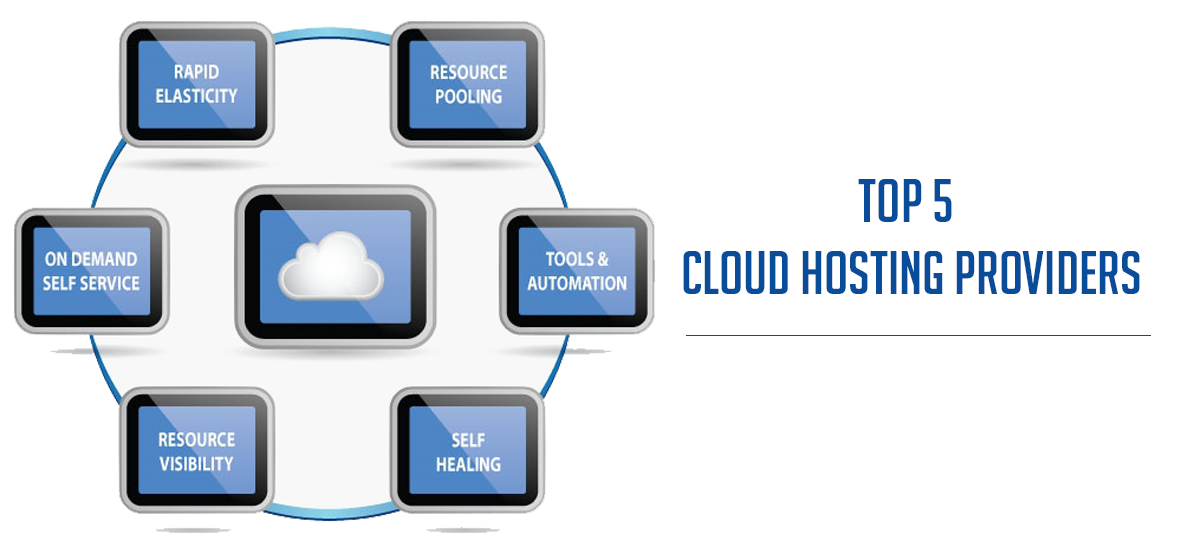Cloud hosting is essential for modern businesses. It ensures reliability and scalability.
In this blog, we’ll explore the best cloud hosting companies. Choosing the right cloud hosting provider can boost your website’s performance. With so many options available, making a decision can be tough. We’ll break down top companies, highlighting key features and benefits.
Whether you need robust security, high speed, or excellent customer support, there’s a provider for you. We’ll help you find the best match for your needs. Stay tuned to discover which cloud hosting companies stand out in the market. Make an informed choice and enhance your online presence.
Criteria For Selection
Selecting the best cloud hosting company involves several critical factors. This ensures you get the best value and performance for your needs. Below are the essential criteria to consider:
Performance
The performance of a cloud hosting service is a primary consideration. It affects the speed and reliability of your website. Look for companies with high uptime guarantees. Ensure they use solid-state drives (SSDs) for faster data retrieval.
- Uptime: Aim for at least 99.9% uptime.
- Speed: SSDs improve load times.
- Network Infrastructure: Check for fast and modern networks.
Security
Security is crucial to protect your data and maintain trust. The best cloud hosting companies offer robust security features. These include:
- SSL Certificates: Ensure data encryption.
- Firewalls: Protect against unauthorized access.
- Regular Backups: Restore data in case of loss.
Scalability
Scalability is key for growing businesses. Your cloud hosting service should easily handle increased traffic and data. Look for:
- Flexible Plans: Upgrade or downgrade as needed.
- Resource Allocation: Allocate more CPU, RAM, or storage quickly.
Customer Support
Reliable customer support ensures issues are resolved promptly. The best companies offer:
| Support Type | Details |
|---|---|
| 24/7 Support: | Available anytime for emergencies. |
| Live Chat: | Quick resolutions through instant messaging. |
| Knowledge Base: | Self-help resources for common issues. |
Pricing
Pricing is a significant factor for many. Compare the cost against the features and benefits offered. Consider:
- Transparent Pricing: No hidden fees.
- Free Trials: Test the service before committing.
- Money-Back Guarantees: Get refunds if not satisfied.

Credit: whmcsglobalservices.com
Amazon Web Services (aws)
Amazon Web Services (AWS) is a leading cloud hosting provider. AWS offers a wide range of services to meet various needs. Many businesses trust AWS for its reliability and performance.
Features
AWS provides many powerful features. These features make it a top choice for cloud hosting.
- Scalability: Easily scale resources up or down as needed.
- Global Reach: Data centers in many regions around the world.
- Security: Advanced security measures to protect your data.
- Variety of Services: Compute, storage, databases, analytics, and more.
- Machine Learning: Tools and frameworks for AI and ML development.
- Developer Tools: CI/CD, code management, and monitoring tools.
Pros And Cons
AWS has many strengths, but it also has some drawbacks.
| Pros | Cons |
|---|---|
|
|
Pricing
AWS offers a variety of pricing options. These options help you control costs effectively.
- Pay-as-you-go: Pay only for the resources you use.
- Reserved Instances: Save up to 75% by reserving resources in advance.
- Spot Instances: Bid for unused capacity at lower prices.
For more details, you can visit the AWS pricing page.
Microsoft Azure
Microsoft Azure is one of the leading cloud hosting companies in the world. It offers a wide range of services and tools for businesses of all sizes. Azure provides reliable and scalable cloud solutions, making it a popular choice for many organizations.
Features
Microsoft Azure comes with a rich set of features that cater to various business needs.
- Scalability: Azure allows you to scale your applications based on demand.
- Security: It offers advanced security features to protect your data.
- Global Reach: Azure has data centers in many regions worldwide.
- Integration: Seamless integration with other Microsoft products.
- AI and Machine Learning: Tools for building intelligent applications.
Pros And Cons
Like any service, Microsoft Azure has its strengths and weaknesses.
| Pros | Cons |
|---|---|
|
|
Pricing
Microsoft Azure offers a flexible pricing model. You only pay for what you use.
- Pay-as-you-go: No upfront costs, pay based on usage.
- Reserved Instances: Commit to a one or three-year term for discounts.
- Spot Pricing: Purchase unused capacity at a discounted rate.
Azure also provides a pricing calculator on their website. This tool helps you estimate costs based on your needs.
Google Cloud Platform (gcp)
Google Cloud Platform (GCP) is one of the top cloud hosting services today. It offers a wide range of features and services. GCP is known for its strong infrastructure, security, and reliability. Many businesses trust GCP for their cloud hosting needs.
Features
- Scalability: GCP can handle any size of workload. It scales resources up or down as needed.
- Global Network: GCP has data centers all over the world. This ensures low latency and high availability.
- Security: GCP provides strong security features. These include encryption, firewalls, and identity management.
- Machine Learning: GCP offers advanced machine learning tools. These help businesses analyze data and gain insights.
- Integration: GCP integrates well with other Google services. This includes Google Workspace and Google Ads.
Pros And Cons
| Pros | Cons |
|---|---|
|
|
Pricing
GCP uses a pay-as-you-go pricing model. This means you only pay for what you use. The pricing can be complex, though. Here is a basic overview:
- Compute Engine: Starts at $0.01 per hour.
- Storage: Starts at $0.02 per GB per month.
- BigQuery: Starts at $5 per TB of data processed.
- Machine Learning: Pricing varies based on usage.
GCP offers a free tier with limited usage. This is great for small projects or testing.
Digitalocean
DigitalOcean is a popular cloud hosting provider known for its simplicity and robust features. It caters to developers and businesses seeking scalable cloud solutions. Let’s explore the key aspects of DigitalOcean.
Features
- Simplicity: DigitalOcean offers a user-friendly control panel and intuitive design.
- Scalability: Easily scale your applications with Droplets, Kubernetes, and managed databases.
- Performance: High-performance SSD-based storage ensures fast read/write speeds.
- Global Network: Data centers in multiple regions for low latency and redundancy.
- Security: Provides built-in DDoS protection and automated backups.
Pros And Cons
| Pros | Cons |
|---|---|
| Simple and easy-to-use interface | Limited customer support options |
| Flexible pricing with hourly billing | May require technical knowledge for advanced features |
| Wide range of services | Not ideal for large-scale enterprises |
| Reliable and fast servers | No Windows hosting options |
Pricing
DigitalOcean offers competitive and flexible pricing plans. Here are some popular options:
- Standard Droplets: Starting at $5 per month for 1GB RAM, 1 vCPU, and 25GB SSD.
- General Purpose Droplets: Starting at $60 per month for 8GB RAM, 2 vCPUs, and 25GB SSD.
- Kubernetes: Managed Kubernetes clusters starting at $10 per month.
- Managed Databases: Starting at $15 per month for 1GB RAM and 1 vCPU.
DigitalOcean also offers hourly billing, allowing you to pay only for what you use. This makes it a cost-effective choice for developers and small businesses.
Ibm Cloud
IBM Cloud is a top choice in the cloud hosting space. Known for its robust infrastructure and advanced features, IBM Cloud offers solutions for businesses of all sizes. Let’s dive into the details of what makes IBM Cloud stand out.
Features
IBM Cloud comes with a range of features designed to meet diverse needs.
- Scalability: Easily scale resources up or down based on demand.
- Security: Enhanced security measures to protect your data.
- AI Integration: Leverage AI tools for data analysis and insights.
- Global Reach: Data centers in key locations worldwide.
- Hybrid Cloud: Seamless integration with on-premises systems.
- Developer Tools: Comprehensive suite of tools for developers.
Pros And Cons
| Pros | Cons |
|---|---|
|
|
Pricing
IBM Cloud offers flexible pricing options to suit different needs.
- Pay-as-you-go: Only pay for the resources you use.
- Subscription Plans: Choose from various subscription tiers for predictable costs.
- Custom Pricing: Tailored pricing plans for large enterprises.
IBM Cloud’s pricing can be found on their official website. They offer detailed quotes based on your specific requirements.
Oracle Cloud
Oracle Cloud is one of the leading cloud hosting services available today. It offers robust infrastructure, a suite of integrated cloud applications, and powerful tools for businesses of all sizes. Known for its reliability and scalability, Oracle Cloud stands out in the competitive cloud hosting market.
Features
Oracle Cloud offers a wide range of features to cater to various business needs:
- Comprehensive suite of cloud services: Compute, storage, networking, and more.
- High performance: Delivers low-latency and high-throughput for demanding applications.
- Global presence: Data centers in multiple regions around the world.
- Advanced security: Built-in security features to protect data and applications.
- Scalability: Easily scale resources up or down based on demand.
Pros And Cons
Oracle Cloud has its strengths and weaknesses. Here’s a quick overview:
| Pros | Cons |
|---|---|
|
|
Pricing
Oracle Cloud’s pricing can vary based on the services and resources you choose:
- Pay-as-you-go: No upfront costs, pay only for what you use.
- Monthly Flex: Commit to a monthly amount and get discounts.
- Annual Flex: Prepay for a year and get further discounts.
Oracle Cloud also offers a limited free tier for new users to try out their services.

Credit: www.isitwp.com
Alibaba Cloud
Alibaba Cloud is one of the leading cloud service providers in the world. It offers a wide range of cloud computing services to businesses and developers. Alibaba Cloud, also known as Aliyun, is known for its robust infrastructure and competitive pricing.
Features
Alibaba Cloud provides a variety of features that cater to different needs. Some of the key features include:
- Elastic Compute Service (ECS): Scalable and flexible virtual servers.
- Object Storage Service (OSS): Secure and scalable storage.
- Content Delivery Network (CDN): Fast content delivery with global reach.
- Relational Database Service (RDS): Managed database services for multiple database types.
- Security: Advanced security features including DDoS protection and compliance certifications.
Pros And Cons
Here are the pros and cons of using Alibaba Cloud:
| Pros | Cons |
|---|---|
| Competitive pricing | Limited customer support outside Asia |
| Extensive global infrastructure | Complex setup for beginners |
| Wide range of services | Documentation not always clear |
| Strong security features | Fewer third-party integrations |
Pricing
Alibaba Cloud offers a pay-as-you-go pricing model. This ensures flexibility and cost-efficiency. Here are some pricing details:
- Elastic Compute Service (ECS): Starts at $2.50 per month.
- Object Storage Service (OSS): Pricing starts at $0.023 per GB per month.
- Relational Database Service (RDS): Prices begin at $9.00 per month.
- Content Delivery Network (CDN): Pricing starts at $0.03 per GB.
Alibaba Cloud also offers free trials and discounts for new users. This allows you to test their services without significant upfront costs.
Vultr
Vultr is a cloud hosting provider known for its high performance. It offers a wide range of services, including cloud compute, bare metal, and block storage. Vultr is a popular choice for businesses and developers due to its reliability and scalability.
Features
Vultr provides several key features that make it a competitive cloud hosting option. These features include:
- High Performance: Vultr uses the latest Intel CPUs for fast processing.
- Global Network: It has 20 data centers across the world.
- Scalability: Easily scale your resources as your needs grow.
- One-Click Deployments: Quickly deploy applications with one click.
- Custom ISO Support: Upload and use your own ISO files.
- Advanced Networking: Features like IPv6, private networks, and DDoS protection.
Pros And Cons
Every cloud hosting provider has its strengths and weaknesses. Here are the pros and cons of using Vultr:
| Pros | Cons |
|---|---|
| High uptime and reliability | No managed support option |
| Fast server deployment | Can be costly at higher tiers |
| Global data centers | No free trial |
| Custom ISO support | Basic support is limited |
Pricing
Vultr offers flexible pricing plans to suit different needs. The pricing is as follows:
- Cloud Compute: Starts at $2.50 per month for 1 CPU, 512MB RAM, and 10GB SSD.
- High Frequency Compute: Starts at $6.00 per month for 1 CPU, 1GB RAM, and 32GB NVMe.
- Bare Metal: Starts at $120 per month for 8 CPUs, 32GB RAM, and 2x240GB SSD.
- Block Storage: $1 per month for 10GB.
Vultr’s pricing structure allows businesses to choose a plan that fits their budget. This flexibility is ideal for growing businesses.
Linode
Founded in 2003, Linode is one of the most reliable cloud hosting providers. It offers a range of cloud computing services, known for their high performance and flexibility. Linode caters to developers, businesses, and everyone in between, providing a user-friendly platform and robust infrastructure.
Features
- Scalability: Easily scale your resources up or down as needed.
- High Performance: Linode provides SSD storage for fast data access.
- Global Data Centers: Choose from multiple data centers around the world.
- 99.99% Uptime: Linode guarantees minimal downtime.
- 24/7 Customer Support: Access support any time via phone or email.
- API Access: Manage your infrastructure programmatically with a powerful API.
Pros And Cons
| Pros | Cons |
|---|---|
| High performance SSD servers | Requires technical knowledge |
| Affordable pricing | No Windows servers |
| Excellent customer support | Limited managed services |
| Global data centers | Learning curve for beginners |
Pricing
Linode offers a variety of pricing plans to suit different needs. The plans are affordable and transparent, with no hidden fees.
- Nanode: $5/month for 1 GB RAM, 1 CPU, 25 GB SSD, and 1 TB transfer.
- Standard: Starts at $10/month for 2 GB RAM, 1 CPU, 50 GB SSD, and 2 TB transfer.
- High Memory: Starts at $60/month for 24 GB RAM, 6 CPUs, 96 GB SSD, and 6 TB transfer.
All plans include DDoS protection, IPv6 support, and a 7-day money-back guarantee.

Credit: www.cooperativecomputing.com
Frequently Asked Questions
What Are The Top Cloud Hosting Companies?
Several top companies dominate the cloud hosting market. They include Amazon Web Services (AWS), Google Cloud, and Microsoft Azure.
How Does Cloud Hosting Benefit Businesses?
Cloud hosting offers scalability, flexibility, and cost efficiency. It enables businesses to easily scale resources and only pay for what they use.
Is Cloud Hosting Secure For My Data?
Yes, cloud hosting is generally secure. Providers implement strong security measures like encryption, firewalls, and regular audits to protect data.
Conclusion
Choosing the right cloud hosting company can boost your website’s performance. Each provider has unique features and pricing. Consider your specific needs before deciding. Prioritize security, speed, and customer support. Research well to find the best fit. A reliable host ensures smooth, efficient operations.
Make an informed choice for long-term success. Happy hosting!
